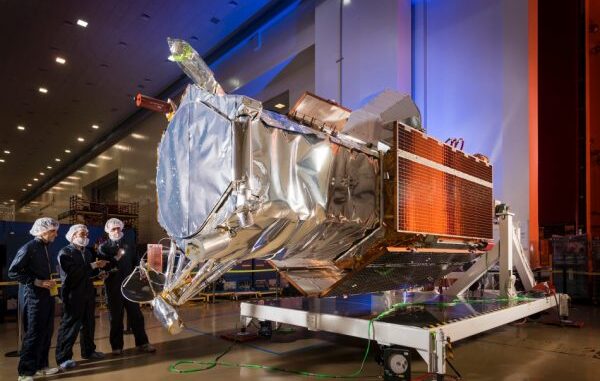
Canadian BIM and Digital Twin Digest: Digital Twins Remodeling Cancer Care; Wolfe Island Welcomes First 3D Printed House; Digital Transformation of Automotive and Aerospace Manufacturing; Digital Twin Consortium Welcomes VERSUS
Digital Twins Remodeling Future Cancer Care
With the rapidly growing technology of Digital Twins, it is only natural that various industries would take the technology and adapt it for their needs.
Cancer Patient Digital Twins (CPDTs) are virtual representations, using real-time data, of real-life cancer patients. The data is collected by model inference, clinical data, and high-performance computing modeling and simulation. This collected data would be used to develop treatments, their predictions, and other healthcare or cancer decisions.

Digital Twins in cancer care replicate the functions of a human body using live data, starting at the molecular level. The technology creates what can be considered a clone of the patient. As can be expected, there are challenges, both moral and technical, when it comes to adapting Digital Twins for the healthcare system.
In recent studies, the technology of Digital Twins has successfully assisted in developing oncology predictions for patients with aggressively mutating and multiplying cancer cells.
https://gogeomatics.ca/how-digital-twin-can-remodel-future-cancer-care/
Wolfe Island Welcomes First 3D Printed House in Canada
Nidus3D, a company from Kingston, Ontario, has used its printing technology to build the first ever 3D printed two-storey home on Wolfe Island.
This type of home is environmentally friendly as it reduces waste by optimizing the placement of materials.
According to one of nidus3D’s founders, Hugh Roberts, the machine uses regular building blueprints to tell the machine where to pour the concrete, which it does layer by layer.

A BIM model is used, then a computer passes information to a “big printing machine,” just like any desktop 3D printer. The other founder Ian Arthur says it has proven to be a “predictable and automated” way to build a home from the ground up.
The home is just slightly more expensive than building a classic wood structure, and nidus3D aims to make these homes even more affordable over time. The company believes 3D printed houses are a game changer for the housing crisis.
https://ottawa.ctvnews.ca/first-two-story-3d-printed-house-being-built-on-wolfe-island-1.6007960
The Digital Transformation of Automotive and Aerospace Manufacturing
The collaboration of UBC Engineering and Fraunhofer have begun a pilot to digitally transform the manufacturing industry.
UBC Faculty of Applied Science and two Fraunhofer institutes are developing ways to digitally improve the efficiency and productivity of Aerospace, automotive, and machine tool manufacturing.

This is a two-year pilot to gather information from the three institutions to create Digital Twins for these manufacturing industries. Internet of Things sensors will be used to track data from machines, factories, and processes to create a virtual replication, looking for ways to improve.
Using Digital Twins is a game-changer for companies who rely on manual operations. The real-time information is incredibly important during disruptions like the recent pandemic. This digital technology is transforming the industry of manufacturing and has been called the Fourth Industrial Revolution.
The collaboration creates economic opportunities and the ability to handle critical challenges. Right now, the pilot’s focus is on the industries of Aerospace, automotive, and machine tool manufacturing, but the collaboration aims to expand to more areas in the future.
Digital Twin Consortium Welcomes VERSUS
International organization, Digital Twin Consortium, recently welcomed a new member to its fold.
VERSUS, an AI company that provides technology in the contextual computing era, is now able to collaborate with the other consortium members such as Google, Microsoft, Esri, HSBC, Kaiser Permanente, and more.
Industries in the consortium include: Aerospace, defense, academia, research, healthcare, engineering, construction, and natural resources among others supported by the Consortium. The industries involved actively invest and support Digital Twins and related technology.

The Digital Twin Consortium was created to assist companies to handle this challenge while developing best practices for long-term Digital Twin adoption and use.
The challenge companies in these industries face with the growing technology of Digital Twins, is generating and deploying Digital Twins as a source for real-time data including visibility, performance improvement, and simulations.
Digital Consortium looks forward to working with VERSUS to advance the capabilities of Digital Twins in countless industries.
https://financialpost.com/globe-newswire/verses-joins-the-digital-twin-consortium




Be the first to comment